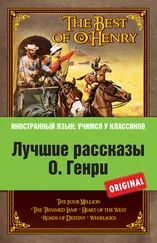She was showing him more affection of late, and the quiet time down here with her in this summer weather had been making him feel quite young; Annette was always running up to Town for one thing or another, so that he had Fleur to himself almost as much as he could wish. To be sure, young Mont had formed a habit of appearing on his motor-cycle almost every other day. Thank goodness, the young fellow had shaved off his half-toothbrushes, and no longer looked like a mountebank! With a girl friend of Fleur’s who was staying in the house, and a neighbouring youth or so, they made two couples after dinner, in the hall, to the music of the electric pianola, which performed Fox-trots unassisted, with a surprised shine on its expressive surface. Annette, even, now and then passed gracefully up and down in the arms of one or other of the young men. And Soames, coming to the drawing-room door, would lift his nose a little sideways, and watch them, waiting to catch a smile from Fleur; then move back to his chair by the drawing-room hearth, to peruse The Times or some other collector’s price list. To his ever-anxious eyes Fleur showed no signs of remembering that caprice of hers.
When she reached him on the dusty road, he slipped his hand within her arm.
“Who, do you think, has been to see you, Dad? She couldn’t wait! Guess!”
“I never guess,” said Soames uneasily. “Who?”
“Your cousin, June Forsyte.”
Quite unconsciously Soames gripped her arm. “What did she want?”
“I don’t know. But it was rather breaking through the feud, wasn’t it?”
“Feud? What feud?”
“The one that exists in your imagination, dear.”
Soames dropped her arm. Was she mocking, or trying to draw him on?
“I suppose she wanted me to buy a picture,” he said at last.
“I don’t think so. Perhaps it was just family affection.”
“She’s only a first cousin once removed,” muttered Soames.
“And the daughter of your enemy.”
“What d’you mean by that?”
“I beg your pardon, dear; I thought he was.”
“Enemy!” repeated Soames. “It’s ancient history. I don’t know where you get your notions.”
“From June Forsyte.”
It had come to her as an inspiration that if he thought she knew, or were on the edge of knowledge, he would tell her.
Soames was startled, but she had underrated his caution and tenacity.
“If you know,” he said coldly, “why do you plague me?”
Fleur saw that she had overreached herself.
“I don’t want to plague you, darling. As you say, why want to know more? Why want to know anything of that ‘small’ mystery – Je m’en fiche [147], as Profond says?”
“That chap!” said Soames profoundly.
That chap, indeed, played a considerable, if invisible, part this summer – for he had not turned up again. Ever since the Sunday when Fleur had drawn attention to him prowling on the lawn, Soames had thought of him a good deal, and always in connection with Annette, for no reason, except that she was looking handsomer than for some time past. His possessive instinct, subtle, less formal, more elastic since the War, kept all misgiving underground. As one looks on some American river, quiet and pleasant, knowing that an alligator perhaps is lying in the mud with his snout just raised and indistinguishable from a snag of wood – so Soames looked on the river of his own existence, subconscious of Monsieur Profond, refusing to see more than the suspicion of his snout. He had at this epoch in his life practically all he wanted, and was as nearly happy as his nature would permit. His senses were at rest; his affections found all the vent they needed in his daughter; his collection was well known, his money well invested; his health excellent, save for a touch of liver now and again; he had not yet begun to worry seriously about what would happen after death, inclining to think that nothing would happen. He resembled one of his own gilt-edged securities, and to knock the gilt off by seeing anything he could avoid seeing would be, he felt instinctively, perverse and retrogressive. Those two crumpled rose-leaves, Fleur’s caprice and Monsieur Profond’s snout, would level away if he lay on them industriously.
That evening Chance, which visits the lives of even the best-invested Forsytes, put a clue into Fleur’s hands. Her father came down to dinner without a handkerchief, and had occasion to blow his nose.
“I’ll get you one, dear,” she had said, and ran upstairs. In the sachet where she sought for it – an old sachet of very faded silk – there were two compartments: one held handkerchiefs; the other was buttoned, and contained something flat and hard. By some childish impulse Fleur unbuttoned it. There was a frame and in it a photograph of herself as a little girl. She gazed at it, fascinated, as one is by one’s own presentment. It slipped under her fidgeting thumb, and she saw that another photograph was behind. She pressed her own down further, and perceived a face, which she seemed to know, of a young woman, very good-looking, in a very old style of evening dress. Slipping her own photograph up over it again, she took out a handkerchief and went down. Only on the stairs did she identify that face. Surely – surely Jon’s mother! The conviction came as a shock. And she stood still in a flurry of thought. Why, of course! Jon’s father had married the woman her father had wanted to marry, had cheated him out of her, perhaps. Then, afraid of showing by her manner that she had lighted on his secret, she refused to think further, and, shaking out the silk handkerchief, entered the dining-room.
“I chose the softest, Father.”
“H’m!” said Soames; “I only use those after a cold. Never mind!”
That evening passed for Fleur in putting two and two together; recalling the look on her father’s face in the confectioner’s shop – a look strange and coldly intimate, a queer look. He must have loved that woman very much to have kept her photograph all this time, in spite of having lost her. Unsparing and matter-of-fact, her mind darted to his relations with her own mother. Had he ever really loved her? She thought not. Jon was the son of the woman he had really loved. Surely, then, he ought not to mind his daughter loving him; it only wanted getting used to. And a sigh of sheer relief was caught in the folds of her nightgown slipping over her head.
Youth only recognises Age by fits and starts. Jon, for one, had never really seen his father’s age till he came back from Spain. The face of the fourth Jolyon, worn by waiting, gave him quite a shock – it looked so wan and old. His father’s mask had been forced awry by the emotion of the meeting, so that the boy suddenly realised how much he must have felt their absence. He summoned to his aid the thought: ‘Well, I didn’t want to go!’ It was out of date for Youth to defer to Age. But Jon was by no means typically modern. His father had always been “so jolly” to him, and to feel that one meant to begin again at once the conduct which his father had suffered six weeks’ loneliness to cure was not agreeable.
At the question, “Well, old man, how did the great Goya strike you?” his conscience pricked him badly. The great Goya only existed because he had created a face which resembled Fleur’s.
On the night of their return, he went to bed full of compunction; but awoke full of anticipation. It was only the fifth of July, and no meeting was fixed with Fleur until the ninth. He was to have three days at home before going back to farm. Somehow he must contrive to see her!
In the lives of men an inexorable rhythm, caused by the need for trousers, not even the fondest parents can deny. On the second day, therefore, Jon went to Town, and having satisfied his conscience by ordering what was indispensable in Conduit Street, turned his face toward Piccadilly. Stratton Street, where her Club was, adjoined Devonshire House. It would be the merest chance that she should be at her Club. But he dawdled down Bond Street with a beating heart, noticing the superiority of all other young men to himself. They wore their clothes with such an air; they had assurance; they were old. He was suddenly overwhelmed by the conviction that Fleur must have forgotten him. Absorbed in his own feeling for her all these weeks, he had mislaid that possibility. The corners of his mouth drooped, his hands felt clammy. Fleur with the pick of youth at the beck of her smile – Fleur incomparable! It was an evil moment. Jon, however, had a great idea that one must be able to face anything. And he braced himself with that dour reflection in front of a bric-a-brac shop. At this high-water mark of what was once the London season, there was nothing to mark it out from any other except a grey top hat or two, and the sun. Jon moved on, and turning the corner into Piccadilly, ran into Val Dartie moving toward the Iseeum Club, to which he had just been elected.
Читать дальше
Конец ознакомительного отрывка
Купить книгу

![Автор неизвестен Эпосы, мифы, легенды и сказания - Самые лучшие английские легенды [The Best English Legends]](/books/34729/avtor-neizvesten-eposy-mify-legendy-i-skazaniya-s-thumb.webp)










